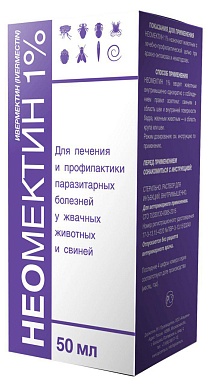Unfortunately, pigs, like no other type of livestock, are susceptible to parasite infestation. This has a lot to do with the behavior and eating habits of the animals.
One sick individual can infect the entire herd. In addition, some types of helminths can be transmitted to humans, so the health of pigs must be closely monitored.
Helminths (the more common name is worms) is a common name for parasitic worms. There are many types of these parasites. They do not always live in the intestines and are passed out with feces. Some feed on blood in the liver, lungs, kidneys and even the brain.
How can a pig become infected with parasites?
- when drinking dirty water, eating greenery that may contain larvae
- digging in the ground, where parasites also live, and swallowing soil fragments
- through the feces of other pigs, if cleanliness in the pen is not maintained
- the piglet can become infected from it’s mother (parasite eggs can be found on the pig's teats)
What harm do parasites cause to pigs?
There are a great many types of helminths. Most often, pigs are affected by roundworms, metastrongylus, trichinella, tapeworms (cestodes), flukes (trematodes).
With all the biological diversity of parasites, one consequence of their activity is that they cause serious harm to the health of the animal, even to the point of death.
Parasites, which attach using suckers and hooks, damage tissue, which can lead to hemorrhage and inflammation.
A large accumulation of worms compresses tissues and organs, as a result they become deformed, and atrophy is possible.
The waste products secreted by helminths lead to allergies.
Parasites lead to exhaustion of the animal, as they feed on blood and intestinal contents. In severe forms, this leads to the death of livestock.
Worm larvae carry pathogenic bacteria that provoke secondary infection. With the body weakened by parasites, treatment might be problematic.
How do you know if an animal is infected with helminths?
- partial or complete loss of appetite
- sudden weight loss
- coughing and wheezing
- restless behavior, the boar often itches
- weakness, apathy or, on the contrary, not typically aggressive behavior
- diarrhea, vomiting
- the presence of parasites in the feces
How to de-worm pigs?
If there are signs of parasite infestation, treatment should be started immediately. You can find many folk remedies on the web, but dedicated medications are much more effective.
Anti-parasite medications should be given to all new animals on the farm to prevent them from becoming a source of infection for others.
Praziver suspension and Neomectin for intramuscular injection.
How does Praziver work?
The medicine has a unique composition. It is based on praziquantel and ivermectin, which result in parasite death.
The substances are well absorbed in the gastrointestinal tract and eliminated naturally.
How to de-worm pigs with Praziver?
The dose of the drug is calculated as follows: 0.6 ml per 10 kg of the animal’s body weight.
You can prepare the medicine for a group of infected pigs, but no more than 50 animals (Praziver is available in bottles of 30, 100 and 200 ml, as well as in 1.5 l cans).
The dosage is calculated as above, then the preparation is mixed with half the amount of feed and laid out in feeders.
A single application is sufficient to remove parasites.
How does Neomectin work?
The medicine contains the same active ingredient as Praziver – ivermectin – which kills parasites.
Neomectin is administered to pigs once using a syringe, in the neck or inner thigh.
Is the meat of an animal that was infected with parasites fit for human consumption?
After treatment, pig meat can be eaten. If worms were discovered during the slaughter of livestock, the carcass is usually disposed of.
Yuri Lizvinsky, veterinarian, Head of Training, Apicenna LLC






